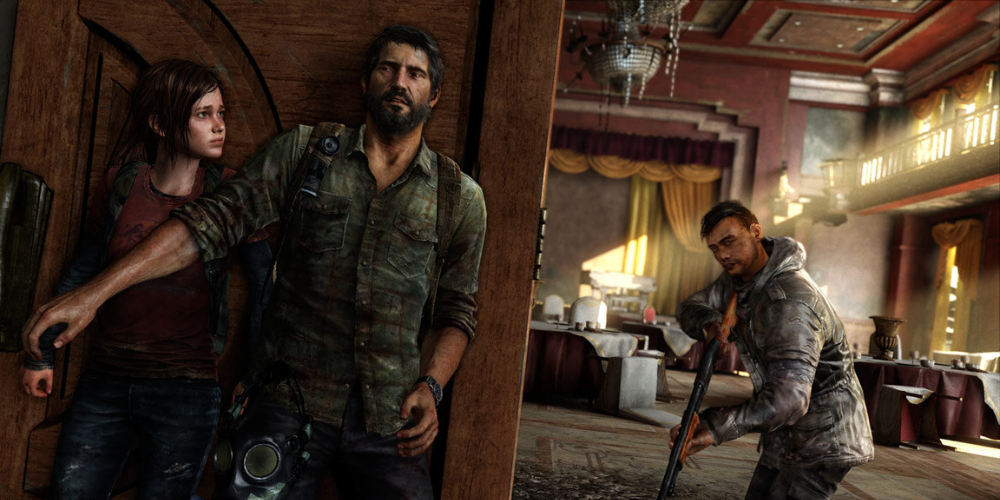The Last of Us Part II: A Study of Character Development and Moral Complexities
- Feb 26, 2024
- 515

The Last of Us Part II, a sequel to the critically acclaimed The Last of Us, emerges not only as a masterpiece of storytelling in video games but also as a profound exploration of character development and moral complexities. This action-adventure game delves into themes of revenge, trauma, and the consequences of one's actions within a post-apocalyptic world. Through its nuanced narrative and meticulously crafted characters, The Last of Us Part II challenges players to confront their preconceptions about right and wrong, friend and foe, in a manner unparalleled by most in its medium. This article aims to dissect the layers of character development and the intricate moral fabric that make The Last of Us Part II a landmark in video game storytelling.
Character Development: The Backbone of Narrative
The Last of Us Part II centers around two protagonists, Ellie and Abby, whose lives are intertwined by a cycle of violence. The game's narrative is structured to alternate between their perspectives, offering players a comprehensive view of both characters' motivations, growth, and internal conflicts.
Ellie: Driven by Vengeance, Defined by Growth

Ellie's journey in The Last of Us Part II is one marked by profound personal growth, which is spurred by her quest for revenge. As players navigate her story, they witness the transformation of a young woman burdened by loss and anger into someone who begins to question the cost of her actions. Ellie's development is characterized by her interactions with other characters, the choices she makes, and her slow realization of the cycle of violence she's perpetuating. It's a testament to the game's writing that Ellie's path, while fraught with pain, ultimately leads to moments of introspection and, possibly, redemption.
Abby: From Enemy to Empathy
Initially presented as the antagonist, Abby's storyline serves as a powerful narrative tool to explore themes of empathy and understanding. As players experience her side of the story, they uncover her motivations, which are rooted in a deep sense of loss and the desire for justice. Abby's character arc is remarkable for how it challenges players' perceptions, gradually revealing a person who is not inherently evil but is driven by circumstances and her sense of duty. Her interactions with characters such as Lev and Yara further humanize her, showcasing her capacity for compassion and change. Through Abby, The Last of Us Part II emphasizes the complexity of human emotions and the grey areas in moral judgment.
Moral Complexities: Navigating a Post-Apocalyptic Ethos

The Last of Us Part II is replete with moral dilemmas that push the boundaries of conventional storytelling. Set against the backdrop of a world ravaged by a fungal pandemic, the game presents a scenario where societal norms have dissolved, and survival often comes at the expense of others. This setting allows for a nuanced discussion of morality, where the line between right and wrong is blurred.
The Cycle of Violence
At the core of the game's moral exploration is the cycle of violence. Both Ellie and Abby are caught up in this cycle, driven by their desires for revenge and justice. As their stories unfold, players are invited to reflect on the consequences of their actions and the perpetual nature of violence. The Last of Us Part II does not shy away from depicting the devastating impact of this cycle, not only on the individuals involved but also on the broader community. It's a poignant commentary on the futility of vengeance and the need for empathy and understanding.
The Shades of Right and Wrong
In a lawless post-apocalyptic world, the concepts of right and wrong become highly subjective. The Last of Us Part II excels in presenting characters and situations that defy black-and-white morality. Through its storytelling, the game raises questions about justice, loyalty, and survival, leaving players to grapple with these issues long after the credits have rolled. This moral ambiguity is a strength of the narrative, forcing a deeper engagement with the game's themes and characters.
Conclusion: A Testament to Video Game Storytelling

The Last of Us Part II is a landmark achievement in video game storytelling, thanks to its sophisticated character development and exploration of moral complexities. Through its dual narrative, the game offers a compelling examination of the human condition, challenging players to consider the impact of their actions and the true nature of right and wrong. The journeys of Ellie and Abby, marked by growth, loss, and the pursuit of understanding, are a masterful depiction of the potential of video games as a medium for nuanced storytelling. In tackling themes of revenge, empathy, and redemption, The Last of Us Part II sets a new standard for narrative depth in video games, making it a must-play for anyone interested in the intersection of storytelling, ethics, and interactive entertainment.
By weaving intricate character arcs with a morally complex world, The Last of Us Part II does more than entertain; it invites introspection and dialogue. It's a poignant reminder of the power of narrative to reflect and shape our understanding of ourselves and the world around us. In the landscape of modern video gaming, Naughty Dog's magnum opus stands out not just for its technical excellence but for its bold, thoughtful approach to storytelling. The Last of Us Part II is, ultimately, a profound exploration of the human spirit, capturing the tragedy of our shared existence in a world teetering on the brink of oblivion.